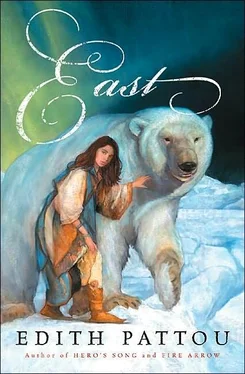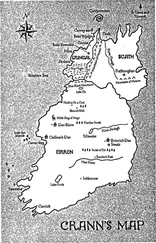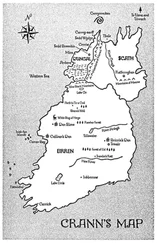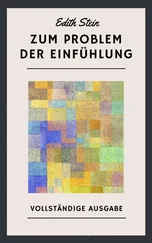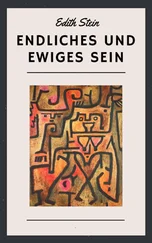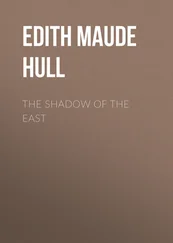Edith Pattou - East
Здесь есть возможность читать онлайн «Edith Pattou - East» весь текст электронной книги совершенно бесплатно (целиком полную версию без сокращений). В некоторых случаях можно слушать аудио, скачать через торрент в формате fb2 и присутствует краткое содержание. Год выпуска: 2002, ISBN: 2002, Издательство: Graphia, Жанр: Старинная литература, на английском языке. Описание произведения, (предисловие) а так же отзывы посетителей доступны на портале библиотеки ЛибКат.
- Название:East
- Автор:
- Издательство:Graphia
- Жанр:
- Год:2002
- ISBN:9780756950545
- Рейтинг книги:3 / 5. Голосов: 2
-
Избранное:Добавить в избранное
- Отзывы:
-
Ваша оценка:
- 60
- 1
- 2
- 3
- 4
- 5
East: краткое содержание, описание и аннотация
Предлагаем к чтению аннотацию, описание, краткое содержание или предисловие (зависит от того, что написал сам автор книги «East»). Если вы не нашли необходимую информацию о книге — напишите в комментариях, мы постараемся отыскать её.
East — читать онлайн бесплатно полную книгу (весь текст) целиком
Ниже представлен текст книги, разбитый по страницам. Система сохранения места последней прочитанной страницы, позволяет с удобством читать онлайн бесплатно книгу «East», без необходимости каждый раз заново искать на чём Вы остановились. Поставьте закладку, и сможете в любой момент перейти на страницу, на которой закончили чтение.
Интервал:
Закладка:
Father
MY EUGENIA'S FERVENT BELIEF in the birth-direction superstition was unusual to say the least. I have never come across anything like it during the course of my life, but it had apparently been handed down through many generations of Eugenia's family.
They believed that birth direction was of overwhelming importance. Not the alignment of the stars, nor the position of the moon, nor the movement of the tides, nor even the traits handed down from parent to child.
My theory was that this strange notion sprang from their preoccupation with mapmaking.
"And every child born in our family," Eugenia explained to me, "is given a name that begins with the first letter of their birth direction. So a north-facing baby might be called Nathaniel; a southwest-facing child, Sarah Wilhelmina; and so on. I myself was an east-facing baby."
"And what are the attributes of an east-facing baby?" I asked.
"Well, among other things, that I am tidy, a sound sleeper, and somewhat superstitious."
Somewhat? " I countered with a grin.
It turned out that Eugenia went a little further with the birth-direction superstition than any of her forebears. On the night after we were wed, she announced to me that she wanted to have seven children.
"Seven is a good number," I replied. "But why seven? Is that a particularly lucky number?" I said with a teasing smile.
"No, it is that I want one child for each point of the compass," she replied.
Puzzled, I said, "But that would be four, or eight perhaps..."
"I have left out north, of course."
"Why not north?" I asked.
"Surely you know about pure northern children?" she responded in surprise.
"No," I said, refraining from reminding her that no one outside her family would even be engaged in such a conversation.
"Oh, they are terrible! Wandering and wild and very ill behaved. Northern people in general are that way. My own sister—surely I've told you this?—married a north-born (against the advice of our mother, needless to say), and he took off on a sailing ship when she was pregnant with their third child and has not been heard of since. I refuse to have a child I cannot keep my eye on."
I felt a sliver of worry at those words. "I hope you are not going to be an overprotective mother, Eugenia."
"Oh no, Arne," she reassured me. "It's just that norths are particularly wild. Always into trouble. But that is not the only reason I will not have a north bairn. There is another, of much more importance."
"And what is that?"
"Some years ago I went with my sister to a skjebne-soke ."
Though skjebne-sokes were scarce in our region, I was not surprised that someone as superstitious as Eugenia had managed to find one.
"She was very gifted, this skjebne-soke. Why, she predicted to the day when Karin Tessel would have her first bairn! And she told my sister that she would lose her husband to the sea..." Eugenia trailed off, then fell silent.
I studied her face. "The skjebne-soke said something about you having a north bairn?"
She nodded, then said in a low voice, "She said that if I were to have a north-born, that child would grow up to die a cold, horrible death, suffocating under ice and snow." She shuddered and instinctively I drew her close to me. Because avalanches were not uncommon during die winter in our country, especially on the seven mountains that surrounded Bergen, I could see that Eugenia took this ominous prediction quite seriously.
I myself considered such prophecy and superstition to be nonsense, and perhaps if I had tried to reason with Eugenia, taken a stronger stand against her many superstitions right from the beginning, I might have averted much of the ill fortune that later befell us. But I did not. I saw her ideas as harmlessly eccentric, even charming at the outset, and I indulged her. I, too, wanted a large family, and seven seemed as good a number as any....
But even Eugenia's own mother thought that methodically planning the birth directions of each of her children was ill advised. Before she died she had cautioned Eugenia against it.
"'Tis meddling in the affairs of God and fate, and only disaster can come of it," she had said.
Eugenia herself had been born due east. Her mother went into labor unexpectedly on a boat that was traveling down the Rauma River, which was notoriously twisty. Fortunately, Eugenia's mother had had a leidarstein and needle with her (she carried both with her at all times during her pregnancy), and the owner of the boat brought a pail of water. While his wife labored, Esbjorn magnetized the needle and floated it in the water, so it turned out that they were able to calculate the birth direction without much difficulty. "To think I might have been a north, had the boat taken a sudden turn!" Eugenia would mutter darkly.
Eugenia began our family with northeast, Nils Erlend. Her reasoning was that she would tackle the most difficult direction first, when she was youngest and most vigorous; and the next most difficult (Neddy Wilfrid) at the end, when she was at her wisest and most experienced as a parent.
It all went just as Eugenia had planned, from northeast to northwest.
Nils Erlend, who liked to roam but had a frugal, organized side.
Elise, the quiet, perfect east; practical and obedient.
Selme Eva, who was comfortable and kind.
Sara, a strong-willed, passionate girl.
Sonja Wende, who was good with animals and a little bit prescient, farseeing.
Willem, capable and decisive, who also had an easy hand with the farm animals.
And Neddy Wilfrid, the only one with dark hair, though his eyes were as blue as his brothers' and sisters'. Neddy had been Eugenia's easiest birth yet, and he was a dear, quiet babe, smiling far more than he cried, which was seldom.
Seven children in seven years. With a sigh of relief, Eugenia put away her supply of the herb feverfew (which eased morning sickness and the pains of childbirth), as well as her voluminous childbearing shift, which had seen her through the seven pregnancies.
But then Elise, who at eight was our second-eldest child, died suddenly.
Elise had never been a strong child, but Eugenia had had a special fondness for her, partly because she was an east-born like herself.
There is no pain deeper than that of a parent losing a child, but there were still six children who needed our care, and slowly, time healed the sharpest of our grief. Yet even as it did, the empty space at the east point of the compass began to gnaw at Eugenia.
Neddy
FATHER TOLD ME THAT he first began to design wind roses when he was engaged to Mother. As part of his apprenticeship, my grandfather gave him piles of maps to study. And he quickly noticed a symbol on almost every chart, usually in the bottom left corner.
Father told me that the symbol was called a wind rose because it bore a resemblance to a flower, with thirty-two petals, and it had long been used by mapmakers to indicate the direction of the winds. Some were simple and some elaborate, but all used a spear-point fleur-de-lis as the northern point of the rose. He also said that mapmakers would paint their wind roses in brilliant colors, not just because they were prettier that way but also because they were easier to read in the dim lamplight of a ship's deck at twilight.
I loved learning about the history of mapmaking. I dreamed that when I grew up, I would go to one of the big cities and study with distinguished scholars on a wide range of subjects, including maps and exploration. Or else fd be a poet.
I wrote one of my first poems about a wind rose:
The spear points north, south, west, and east,
Wind always shifting, a wandering least.
Читать дальшеИнтервал:
Закладка:
Похожие книги на «East»
Представляем Вашему вниманию похожие книги на «East» списком для выбора. Мы отобрали схожую по названию и смыслу литературу в надежде предоставить читателям больше вариантов отыскать новые, интересные, ещё непрочитанные произведения.
Обсуждение, отзывы о книге «East» и просто собственные мнения читателей. Оставьте ваши комментарии, напишите, что Вы думаете о произведении, его смысле или главных героях. Укажите что конкретно понравилось, а что нет, и почему Вы так считаете.
